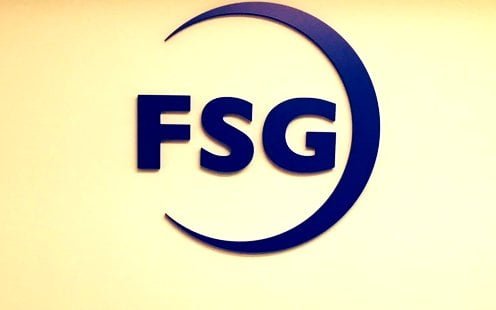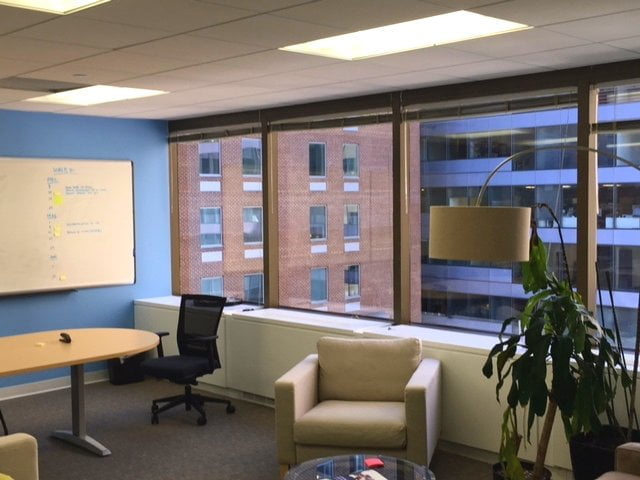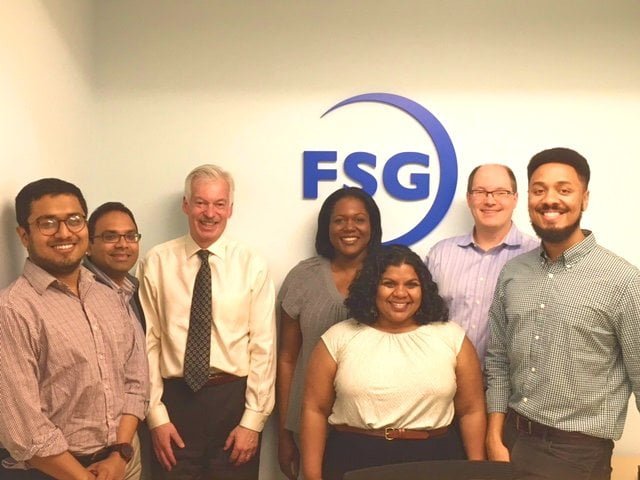Better Than Most is a regular feature of The Business of Giving examining the best places to work among social businesses and nonprofit organizations.
Denver: Much of the breakthrough thinking has occurred in addressing the most vexing social issues that challenge global society has come from an organization by the name of FSG. And that is where we will be going to this evening! To 1020 19th Street North West in their Washington DC offices. I asked members of the FSG team about working there and this is what they had to say.

Hayling: So what I love about FSG is that there’s one part of my brain that views a lot of these, frankly, social justice issues as market failures, so I’m able to layer on my grad school rigor lens on issues that I care about from an ethical and moral perspective. But then also engage with those who are hopefully beneficiaries of the work and create a vision that makes sense for their work.
Rahfin: When I think about what stands out for me at FSG, it’s that every piece of work, every project we’re on has a clear line of sight to the world and the impact that it can generate.
Ursula: I will also say in that same vein of having no hierarchy… instead of having traditional sort of bosses, if you will, managers, FSG does not take that approach. People have what we call PDLs — professional development leaders. And because we are, by and large, generalists working on different projects across different geographies, people have that constant PDL who help to coach their professional development, help them understand how they can sort of engage in projects that would satiate them in the most satisfying of ways. But it’s not a traditional boss, and the absence of that boss I think again, contributes to a spirit of camaraderie and co-creation that you really don’t find in any other places.
Neeraja: I’ve really seen the magic and the power of the work that we do through this particular work that we’ve been doing over the past few years. We’ve had people who are so steeped in the technical expertise say to us, “We’ve never thought about this this way. You’ve helped us tremendously. You kind of helped us figure out how to move forward.” You’re actually facilitating progress in ways that they wouldn’t have been able to do. And when that happens it is both humbling, exciting, and a little bit surprising because you’re sitting there with people who’ve had expertise in these areas for so long. But it’s having someone to be able to bring the strategic lens, helping bring the facilitation skills to actually help people pull up from all of the expertise that they have and make sense of everything that they’re working on.
And this has really kind of have come to life for me on some work that I’m doing right now on helping to support accelerating the market introduction of new HIV prevention products in South Africa, Kenya and Zimbabwe. And that work has really had us entering rooms full of people with MDs, PhDs, longtime experts on HIV prevention, longtime advocates on HIV and I have to admit there’s a lot of trepidation when you walk into those rooms wondering if you almost have a right to be there, if you can really help push this issue forward with people who have been working on it for decades and to have all the technical expertise that comes with these topics in global health.
Hayling: So these are some things that we’re going to be looking for as we reimagine how we incentivize performance around DEI at the firm. And again, it’s messy work. It’s not as maybe easy as spotting an error in Excel model which is, for sure, you can rate on a scale of 1 to 10. But the way someone is manifesting a commitment to equity and centering that in their work is important at FSG. It’s complicated, but what I’m really encouraged about from the newer staff members’ perspective that from leadership all the way down, you see a deep commitment to living into this every day and I’m really proud to be at a firm where that’s a priority.
Adeeb: One of the hallmarks of our work is that even though we bring very strong perspectives on how social change happens, we never claim that we have all of the answers. And so a characteristic of how we do the work is that we always try to co-create the ultimate answers and the solutions…
Ursula: Here in the DC office, we have now more new people than veteran FSG staff in the last year. We’ve doubled in size. And part of what’s happened and part of what we all fully embraced is the fact that many of these new individuals including me have the opportunity to help shape the new office culture of the Washington DC office. Again, it’s not something that’s sort of pushed down on our office from on high as to “This is what you have to do. This is the rhythm of when you come in, when you leave yadda yadda yadda…” We all have that opportunity to shape it. I think we’ve jelled really well, really quickly in creating a culture that I think we’re all happy with.
Dane: One of the things I think is really distinct about FSG as something I value a lot is that for each of our consulting projects, we kick off the project whether it’s a 2-month or a 6-month project with a team session, so that we can share what our different professional development objectives are, what our favorite ways of working are, what are the little quirks that we need to share with others so that we can work effectively together.

We also share things about ways of working, who prefers to work late at night, who prefers to work early in the morning, who really gets energized by group brainstorming to explore new ideas, who prefers to work alone by him or herself in a room to think through ideas before he or she shares it with the group. I think that’s really important.
Neeraja: But one of these guidelines that we believe strongly in is that no one knows everything but together we know a lot… And I think that really exemplifies the way that we work. It’s the way that we work in our teams and in our offices which are constantly filled with flip chart, post-it notes, full whiteboards and people jumping in on each other’s brainstorming sessions because it’s interesting and it’s fun and we all have something to contribute.
Rahfin: When I think about audacity and humility in how FSG approaches the work, the term that comes to mind for me is generous orthodoxy. It’s a theological concept about melding tradition with kind of a mission-driven change-driven spirit. And when I think about what we’re trying to do, we’re trying to take the orthodox and change the orthodox into something that can have more impact for more people for society and that I have always been impressed by no matter who I’m working with at FSG we have kind of have this in our ethos that we want to get the client or the system to a certain point but we also want to be very aware of where the client or the system is and that’s the real way to create change.
Adeeb: It’s a culture that is extremely collaborative. And i think that comes from the fact that everyone at FSG — no matter what you’re title, tenure or role — they come here with the sense of urgency. They’re not happy with the things are in this world whether it’s about high school graduation rates or whether it’s about the role of the private sector in sub-Saharan Africa. They want to play their part as part of FSG in trying to change that and because there’s that sense of urgency in everyone, it’s not competitive. If someone comes in and tries to help me with my work, I don’t think of tough work, I think that, “Wow, this is going to help me work even better.” And that creates for an extremely collaborative culture.
Dane: So one of the ways that we do this is with a monthly survey of everybody in the firm about how hard they feel they’re working, how stressed they feel they are and how tough they anticipate the next month to be. And when someone is on, it’s pretty simple. It’s a quick survey. People answer on a 5-point scale where 5 is the most stressed out and the most overworked. But every time anybody comes up as being a 4 or a 5 on the survey, then there are a series of conversations with the managing director whose responsible for the project with people from our people team about what can be done to try to ease that stress.

Denver: I want to thank Carrie Benjamin for organizing my visit and to all those who participated in the segment: Hayling Price, Rahfin Faruk, Ursula Wright, Adeeb Mahmud, Dane Smith, Neeraja Bhavaraju.
The Business of Giving can be heard every Sunday evening between 6:00 p.m. and 7:00 p.m. Eastern on AM 970 The Answer in New York and on iHeartRadio. You can follow us @bizofgive on Twitter, @bizofgive on Instagram and at www.facebook.com/BusinessOfGiving

